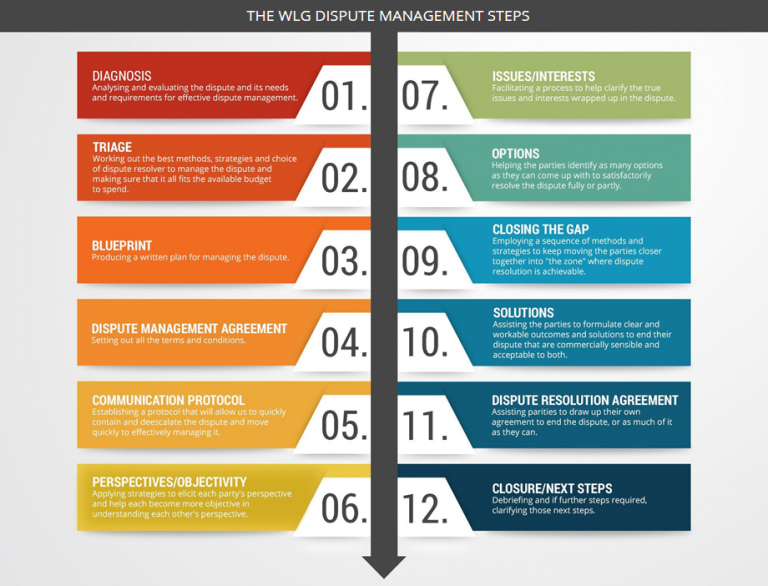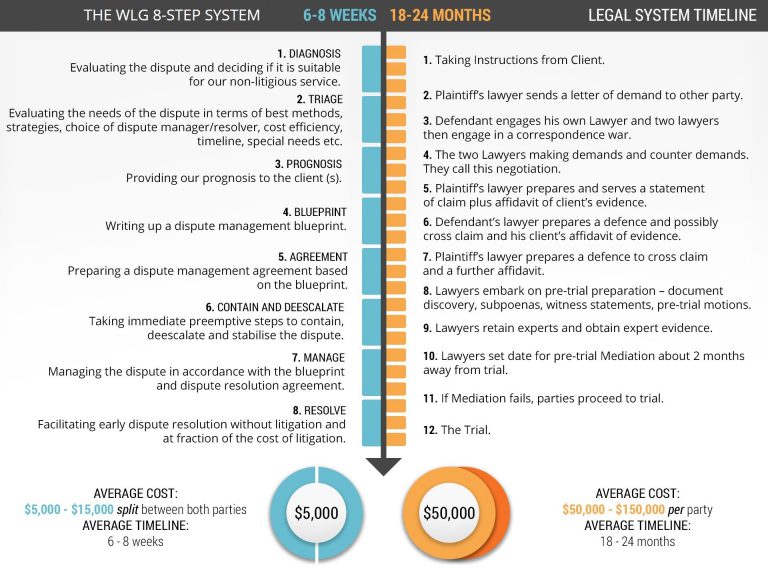Tasmanian Legal Profession : Early Dispute Resolution Strategies v Traditional Litigation Methods
There have been extensive discussions both privately and publicly regarding the legal profession leaning too heavily on traditional methods as a means to resolve disputes. Indeed, quite a few years back, at an industry conference, Victorian Supreme Court Judge David Byrne mentioned the lack of effort made by barristers to reach resolution outside of court proceedings. At the same conference, then High Court Justice Kenneth Hayne also spoke of the way in which the legal system was being over used by practitioners as being one of the major stumbling blocks for anyone seeking a more streamlined and effective resolution process.
According to a report published by IBISWorld in 2014, there was expected to be an exponential increase in alternative dispute resolution (ADR) over the following five years, with annualised growth of 3.2% expected. While there has certainly been an increase in ADR, it seems that the move towards a robust process of alternative resolution has been slower than expected. This is certainly so in the State of Tasmania.
The question then becomes, why are too many Tasmanian legal practitioners neglecting their obligation to try and resolve more disputes early and without resort to litigation? Is this indicative of a cultural issue; is the legal fraternity so indoctrinated to the perceived importance of litigation that it has become the first resort rather than the last?
There is a strong view held by non-lawyer mediators around the country that lawyers have successfully hijacked mediation and converted it into litigate first, then mediate before a trial date is set. They have entrenched mediation into the litigation timeline rather than used mediation as an effective tool for early dispute resolution so as to avoid or curtail litigation.
There is no doubt that alternative dispute resolution can significantly benefit the parties to a dispute, by saving them time, stress and money. However some lawyers may perceive it as a threat to revenue generated via litigation. With so many resolvable disputes still heading to court, there can be little doubt that more than a few are being litigated as a result of substandard advice, and a bias towards acting in the best financial interests of the firm, at the expense of the client. As the Productivity Commission so aptly pointed out in its report on civil dispute resolution in 2015 “the interests of the lawyers may not always coincide with the interests of their clients.”
Indeed, the question must be asked as to whether some clients are even made fully aware that they have certain opportunities in the early stages of a dispute to avoid the court system altogether through engaging and employing alternative non-litigious dispute resolution processes, strategies and methods.
While some of the above statements may seem combative, it is important that those within the legal community regularly remind themselves of their legal and ethical obligation to act in the best interests of their client regardless of remuneration differentials.
Of course mention should be made of the culture that exists within some mainstream law firms to judge a lawyer’s worth based on his or her ability and willingness to work long hours and generate big fees via time billing clients, rather than by the speed, time and cost efficiency in which they can manage and resolve a dispute.
As the competitive landscape for law firms becomes more complex, it will be up to leaders to decide how they wish to be perceived in the marketplace. These decisions will potentially have a far greater impact than many may think, as clients become more astute, and seek out the smoothest and most time and cost efficient pathway to dispute resolution, rather than taking traditional routes through courts and litigation that raise the spectre of lengthy entanglement with lawyers and big legal fees.
These remarks are very apt and applicable to both family law property settlement disputes and residential building disputes. See our other posts on these topics.
Whitelaw Legal Group’s Principal and Managing Director, Christopher Whitelaw, has been a nationally accredited commercial mediator since 2001 and is on the list of the Law Society of Tasmania’s approved mediators. He is also on the panel of mediators used by the Small Business and Family Enterprise Ombudsman.


